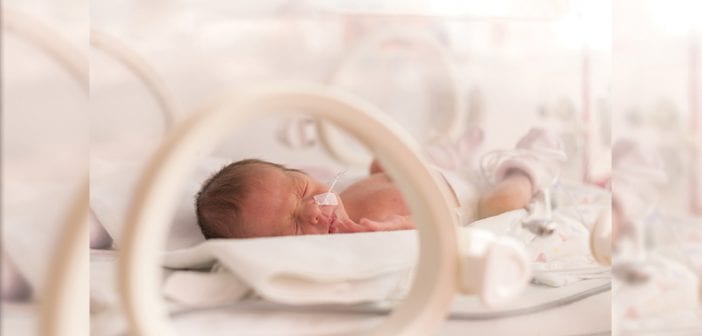Matt Rodewald, a reporter for Fox 10 Phoenix, found a unique way to acknowledge World Prematurity Day this year. The husband and father posted on Twitter explaining that he wore purple every day for a week in television appearances to call attention to World Prematurity Day. He encouraged other reporters and news anchors to do the same on Saturday, November 17, which marks an international day of awareness for babies born prematurely.
For Rodewald, the annual awareness day is deeply personal. He wrote, “My boys would have been 4 years old had they not come too soon. Let’s show grieving parents we’re thinking of them on #WorldPrematurityDay [by wearing purple].” Many parents responded on Twitter with their own stories of losing babies born prematurely, and others had stories of hope about babies who beat the odds.
The moving stories of both loss and hope shared in response to Rodewald’s personal post speak to the humanity of the preborn. No matter what stage of development, the babies in these stories are undeniably fully human. As medical technologies have advanced, more premature babies are not only surviving but thriving with few or no long-term complications. Our understanding of risk factors for preterm birth, including abortion, is also developing.
Even so, premature birth still occurs for complex reasons that are not well understood and remains the leading cause of death for children under five worldwide (except for abortion, which is the leading cause of death). In 2016, the rate of preterm birth in the United States worsened for the first time in eight years.
In a society that devalues preborn Life, unsurprisingly, there are misconceptions about preterm babies and even overt discrimination against providing appropriate medical care. One family’s experience of discrimination became a public firestorm for AOL in 2014. Deanna Fei, whose daughter Mila was born prematurely, wrote about her experience for Time when her husband’s employer blamed the medical expenses of two premature babies for cutting an employee retirement savings program.
Fei writes that in the discussion following the CEO’s controversial statement “our family seems more and more at fault somehow, and our daughter’s humanity seems less and less evident.” Fei and her husband decided to go public with their side of the story, writing, “If I don’t reclaim her story, I might as well label her a burden, a tragedy, a creature who shouldn’t exist.”
Reflecting on the CEO’s suggestion that the cost of premature babies was too great for the company to bear, Fei observed, “I’m not sure, in the final accounting, how many of us could survive such a calculus.” Recalling the CEO’s words, Fei says, “The implication is that our baby was a risky proposition from the start, and therefore her care was optional.”
Her daughter Mila did survive with adequate medical care, and, days before being blamed for a company cutting a retirement plan, she took her first steps. Fei wrote, “She is a miracle in the way that any child taking her first steps is a miracle. And yes, she deserves a little extra credit. Some recognition of her strength, not only her suffering; of her resilience, not only her damage.”
Premature birth, like devastating car accidents and severe disabilities, is unforeseen and at this time unpreventable. Singling out the medical expenses of those who need extensive treatment is unjust in every instance. Since publishing her story, Fei and her family have received tremendous support and there is a growing understanding of the need to support premature babies and their families.
Yet, a deadly form of discrimination still exists. Although babies like Mila receive life-saving care, babies diagnosed with a disability can be killed in the womb, even in late stages of pregnancy when babies undeniably feel the pain of abortion and may even be viable outside the womb. Abortion at any stage takes a human life but killing a fully developed baby close to birth is seen by many people as particularly barbaric and inhumane. While one baby born at 25 weeks is given extensive medical treatment and a chance at Life, a child of the same gestational age in Texas can be violently killed in the womb for no other reason than being diagnosed with a disability.
Tragically, not every baby will survive premature birth or certain disabilities. However, we have made incredible advancements in the care of all babies because doctors did not give up. To honor the humanity of the preborn, we must mourn for those who were with us only a short time, like Matt Rodewald’s sons, and give every child a chance. This World Prematurity Day, all babies deserve love, care, and, above all, the Right to Life.


